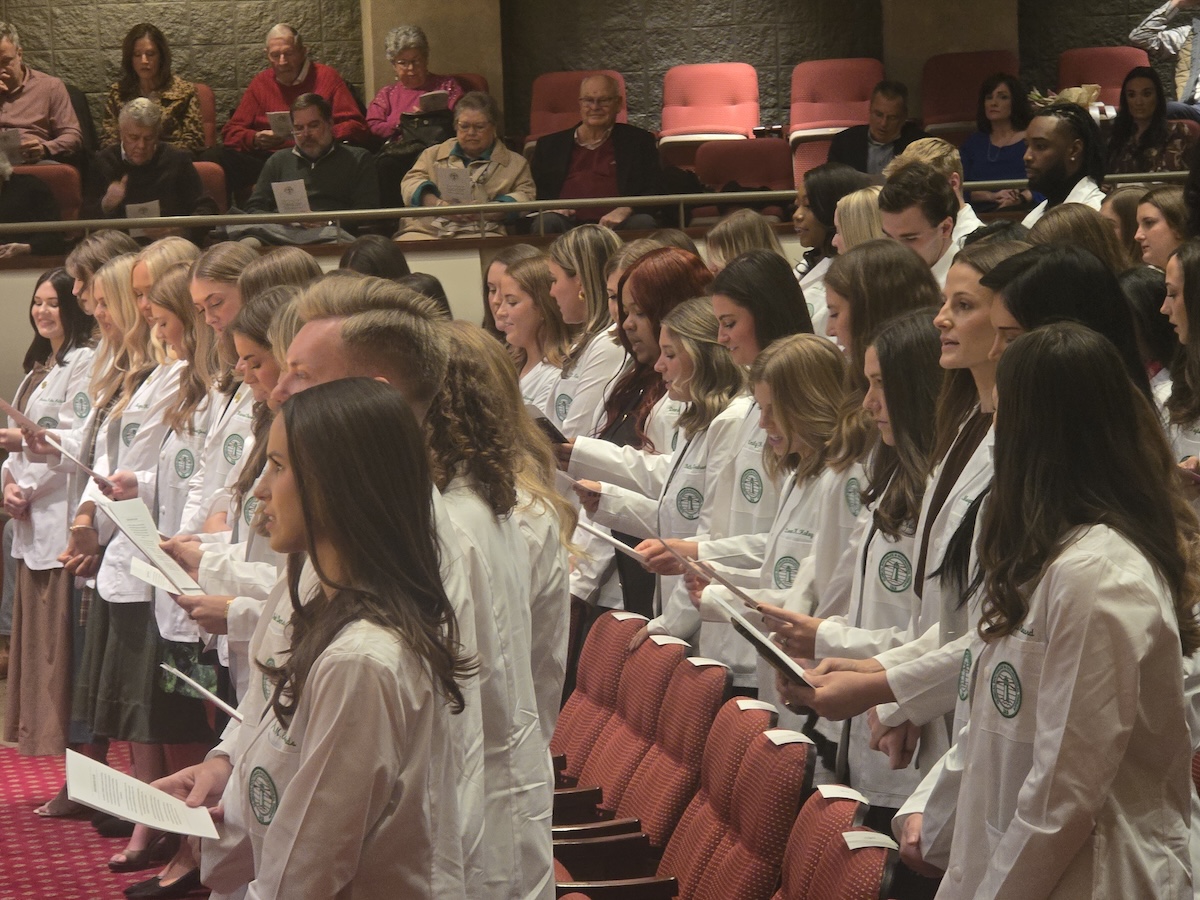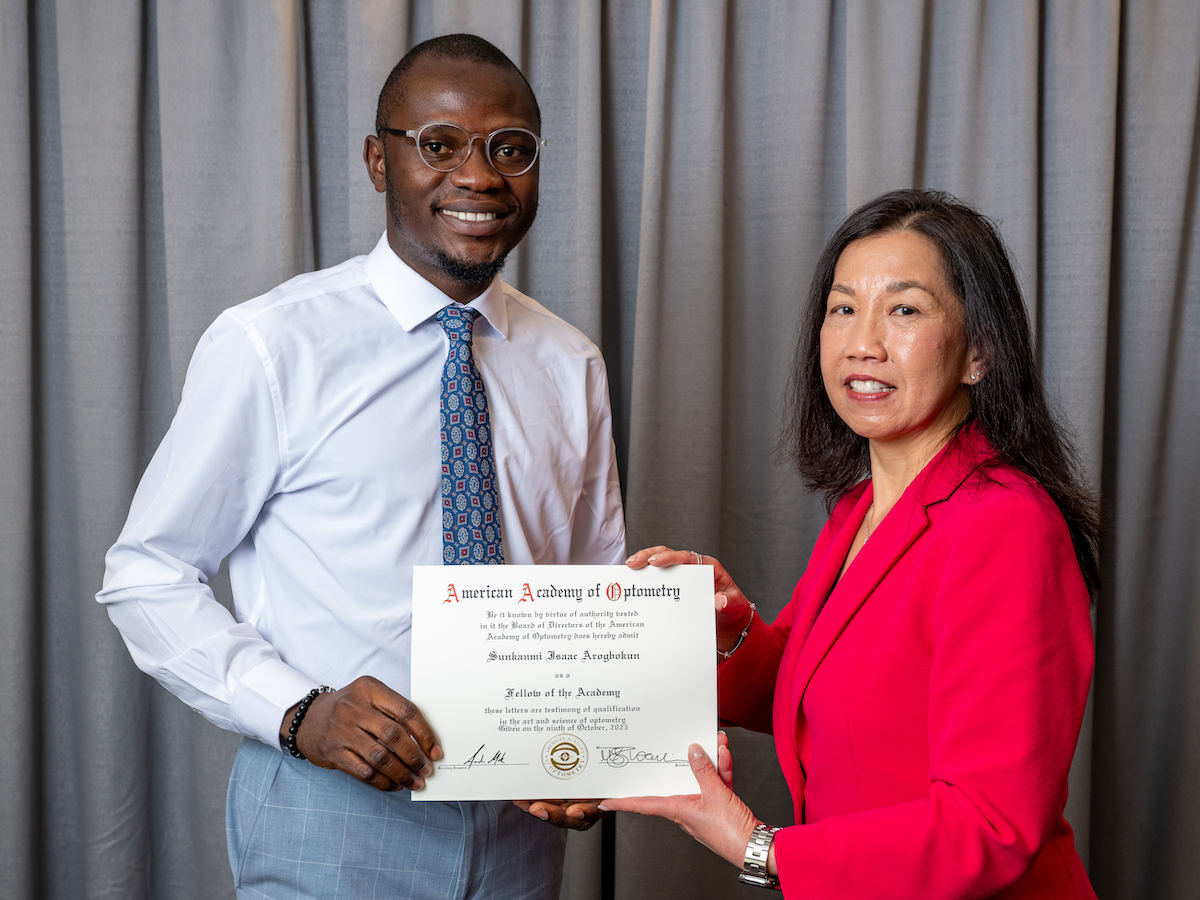 Sophia PorrillWhen UAB master’s student Sophia Porrill began her kinesiology studies, her interests were rooted in sports and athletic performance. But her experiences in the CEDHARS lab opened her eyes to a broader purpose – one that focuses on making exercise accessible and enjoyable for people with disabilities.
Sophia PorrillWhen UAB master’s student Sophia Porrill began her kinesiology studies, her interests were rooted in sports and athletic performance. But her experiences in the CEDHARS lab opened her eyes to a broader purpose – one that focuses on making exercise accessible and enjoyable for people with disabilities.
Porrill, who is completing her master’s degree in kinesiology with a concentration in exercise physiology, is using the CEDHARS lab to conduct her thesis project exploring how self-selected music affects exercise performance and enjoyment for people with Parkinson’s disease.
Her study asks a simple but powerful question: Can the right song make exercise more motivating and effective?
“We had participants walk twice, once with white noise and once with their favorite upbeat song,” Porrill explained. “Everyone had mixed opinions on the white noise, but they genuinely enjoyed walking to their favorite music. It made the experience better.”
Using a combination of brain oxygenation monitoring and research-grade fitness trackers in the Adaptive Human Performance Lab, Porrill measured both physiological and psychological responses to music during walking sessions. The work aims to explore whether music can be used as a tool to boost performance, motivation and adherence to exercise – an especially meaningful question for populations where mobility and motivation can be affected by disease progression.
“At a Parkinson’s disease research panel, I learned that current recommendations suggest 90 minutes of intense exercise a day to slow disease progression,” Porrill said. “That’s a huge commitment, especially for people already facing barriers to movement. I wanted to find ways to make exercise more enjoyable and sustainable.”
Porrill’s journey to this research path was anything but linear. Initially planning to attend physical therapy school immediately after earning her undergraduate degree, she found herself questioning her career path during her senior year. A chance encounter with her now mentor, Dr. Chris Ballmann, changed everything.
“I was freaking out about my future one day in class, and Dr. Ballmann told me to set up a meeting so we could figure it out,” she recalled with a laugh. “That meeting turned into my first real research project, and I loved it.”
With Ballmann’s encouragement, she joined his lab and began working on research that would lead her to the CEDHARS lab, where she connected with Lab Director Alex Evancho and other researchers studying exercise and rehabilitation science.
“Meeting Alex was one of the most valuable parts of my experience,” Porrill said. “She’s a physical therapist who does research, and she showed me that I can do both, work with patients and continue research. She talked me off the ledge a few times and really kept me moving toward my goals.”
Through her time in the CEDHARS lab, Porrill has contributed to several ongoing projects — from studies on ALS and movement-to-music interventions to work with PD Fight Club participants at the Lakeshore Foundation. She credits the lab environment for giving her hands-on experience that set her apart from others in her program.
“Being in the lab gave me exposure to real participants, real data, and real stories,” she said. “I learned how to collect data using equipment like DXA and COSMED systems, but more importantly, how to interact with people and learn from their lived experiences.”
The lab’s proximity to the Lakeshore Foundation and its focus on disability research have also shaped her understanding of exercise as a tool for empowerment.
“Meeting participants with disabilities made me realize how big the gap is in accessibility,” she said. “My passion is making exercise possible and enjoyable for everyone.”
Set to graduate in December, Porrill will begin physical therapy school in January 2026 with her sights set on eventually combining clinical practice and research through a Ph.D.
“My ultimate goal is to be both a researcher and an educator,” she said. “The experience I’ve had through CEDHARS has been invaluable in preparing me for that next step.”
Porrill says her time in the CEDHARS lab gave her not only the technical skills for research, but also the confidence to merge her interests in physical therapy, exercise science and disability health.
“I’ve met so many incredible people here who are passionate about improving access and quality of life for people with disabilities,” she said. “It’s changed how I see my career and what’s possible.”
